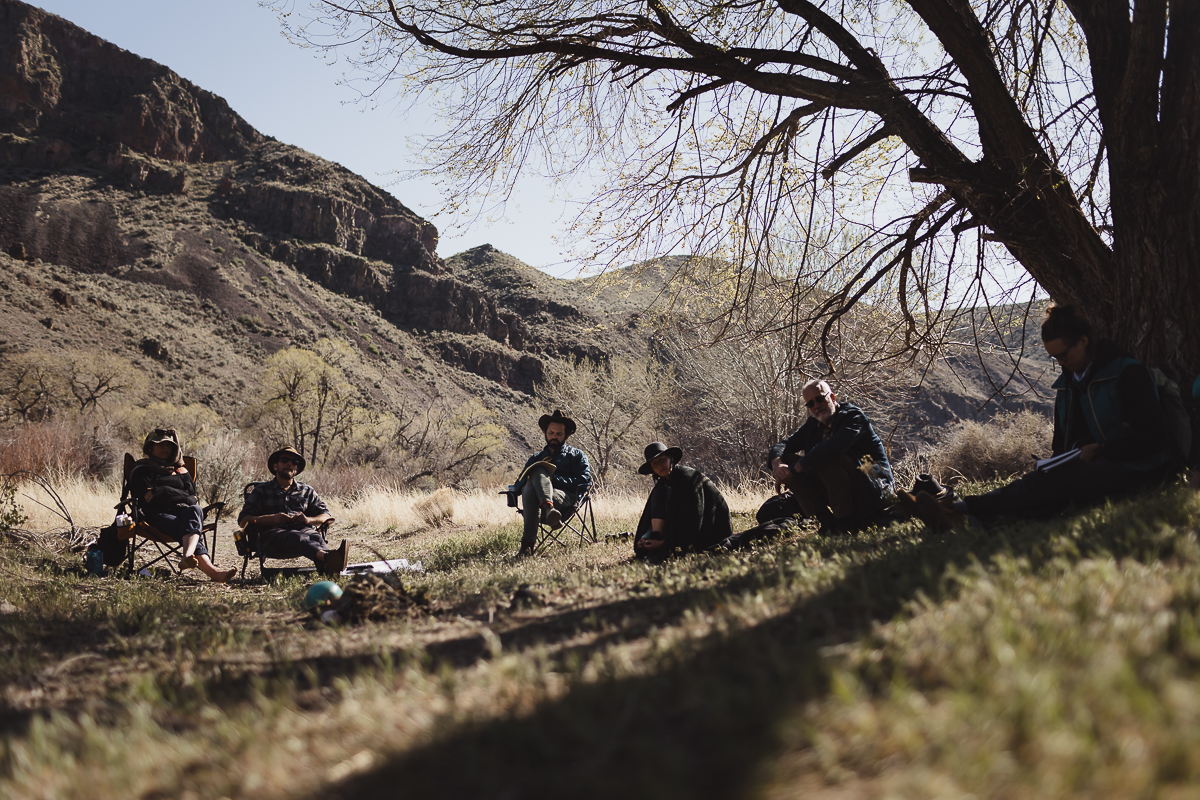For the children
There's a basic fear between your world and
mine. I don't know why.
What I came to say was,
teach the children about the cycles.
The life cycles. All other cycles.
That's what it's all about, and it's all forgot.
To have children is to fall in love completely and irrevocably.
It is to have our hearts already broken in nearly every moment. Life starts to feel overwhelmingly fleeting. Every awakening our children have and every discovery they make passes quickly. No amount of photos or videos could ever capture it all, despite the urge to try.
Life gives us an impossible challenge.
Every stage they enter, they leave before we can appreciate it for the fleeting moments of beauty we and they receive from it. We become aware of the need to be fully present for all they need while trying our best to accept who they are.
I doubt any parent can be ready to fall in love in this way until it happens; in fact, parenting seems to show us all the ways we love imperfectly. With both hope and fear. With surrender and control. With moments of abounding joy and then shameful anger.
It is an encounter with life that can only happen when we willingly sacrifice self-protection for love.
"There are many things that can only be seen through eyes that have cried,” wrote Salvadorian Saint Oscar Romero.
Without this breaking down and breaking open, we might imagine a sense of impossible control, a life of continuous upward growth. We have not yet been forced to consider the absolute fragility of all we can love.
The terror of losing our children to the violence and pain of the world feels ever-present these days.
Maybe it always has.
We are watching them stand on the front lines of all the social illnesses we are perpetuating, drinking the poison of suffering that is ours to drink.
Even worse, instead of transforming the poison of this pain into solutions arising from hope, we seem to be spiraling ever more deeply into the sea of hopelessness.
Our tiny hope, fed to us by dominant political, economic, and social narratives, is impossibly self-referential. These stories suggest that our problems will be solved by the same thinking, mindset, and structures that created them.
Many of us seem to quietly know that no repetition of the modern narratives of boundless economic growth, steady scientific progress, and utopian political ideals will save our children, or us, from the reality we have created.
“For it's the end of history
It's caged and frozen still
There is no other pill to take
So swallow the one
That made you ill”
~ Rage Against the Machine, Stand now in the Fire
If it’s not the end of history, and if there is another pill to swallow, this would be its own heartbreaking tragedy. We would be both blessed and burdened. Blessed with a future within our power to create, and burdened with the brokenhearted acceptance of all our past mistakes.
We would recognize our power and responsibility for transforming the hive of errors we have created into honey for generations we will never meet.
Accepting we have a future means accepting we, and everything we know and love, will die. Of course, it also means that everything will be born again.
That we live in cycles within cycles means we are both subjects of the past and, for better or worse, agents of the future.
The story of these cycles runs counter to the narrative of constant growth that numbs our hearts and souls to the medicine that will stop making us sick and start our healing. It will pull us back from the end of history that our abandoned hope is creating.
It will also be a 180-degree turn away from our participation in the economic, political, and social narratives, pulling us down two very different paths leading to the same dead-end. It means heading off either trail and toward our broken hearts and the hands of our children. Offering our hand in protecting and serving them, as the wisdom of their love, hope, and innocence guides us around down and around another cycle, again. It means everything changes except our broken hearts.
Send me the latest blog post

More posts
Beyond Listening Series: Sharpening the Blade — Seeing the World at the Edges


Beyond Listening


Fierce Hope


Found


Stay in Touch
Sign-up for the Open Circle newsletter to receive updates on upcoming classes, events, and much more.






